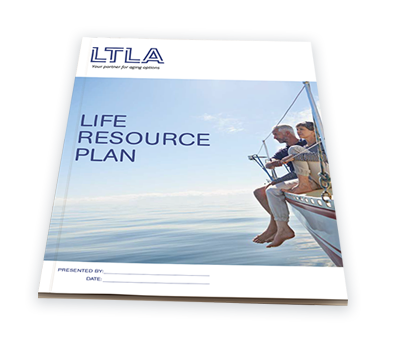
Committed to Helping Others Hear the Beautiful Sounds of Life
Naama Hadar devotes her time to giving those who struggle with hearing loss the gift of hearing.
A Registered Nurse and a Licensed Hearing Instrument Specialist, Naama is passionate about helping others hear better. “Every minute of living with hearing impairment is a minute spent missing out on the beautiful sounds of life,” she says. “Today’s advanced hearing aid technology makes the challenge of living with hearing loss a thing of the past.”
Naama earned her business degree from Rutgers University, and then pursued an advanced degree in nursing and became a Registered Nurse. She first became interested in hearing health when her mother was diagnosed with hearing loss and began wearing hearing aids. But it wasn’t until she passed the New Jersey State Board Exam and became a State Licensed Hearing Instrument Specialist that she knew she’d found her true calling.
Committed to leading individuals with hearing loss to better hearing, Naama treats every one of her patients with the same courtesy, professionalism and dedication her mother received and strives to educate both her patients and their families about the benefits of today’s cutting-edge hearing aid technology.
A multitude of studies have been published on the relationship between health outcomes and the role of nutrients, foods, dietary patterns, supplements, drugs and physical activity. Hearing health is also included among this literature. Research now further shows that untreated hearing loss leads to cognitive decline and increased prevalence of Dementia and Alzheimer in the senior population.
Naama says that there are many factors that can contribute to hearing loss. Aging is certainly one of these as are extended noise exposure, social isolation, Diabetes, Osteoporosis, smoking, and Hypertension. Ototoxicity is also a concern as many medications today are toxic to the ears and can cause an irreversible damage to one’s hearing.
Today technology makes a significant impact on patients’ lives as it allows them to better interact with their environment and lead a happier and healthier life. New advancements in technology now also allow patients to pair their hearing aids with their smart phones and use an app as a remote control as well as to stream phone calls and music from the phone to the hearing aids. These devices are very smart, small, and discrete and are available at all levels of technology to accommodate an individual’s lifestyle and budget.
It may take seven (7) to ten (10) years until one decides to do something about his or her hearing loss. Naama’s goal is to increase awareness about the consequences of untreated hearing loss in her community. To achieve this goal, Naama makes direct contact with her patients and, also, reaches out to Primary Care Physicians, Neurologists, Endocrinologists, and Oncologists, among others, to make them aware of the importance of screening, diagnosing, and treating patients’ hearing loss.
A hearing loss in no longer only about not being able to hear; it’s much more than that, and the long-term consequences are dire. Living with a hearing loss can increase the risk for depression, anxiety, feelings of helplessness, loss of independence, and social isolation.
And, so it is with her continued efforts to bring awareness to the importance of hearing care that Naama is determined to help people live a more meaningful life through better hearing.

You can trust the LTLA hearing care professionals to guide you through your journey to better hearing
About 10% of U.S. citizens experience hearing loss, with 90% of them not being medically treatable; making hearing aids the only viable treatment option. Our hearing care specialists educate patients and their families about the benefits of today’s cutting-edge hearing treatment and technology.
You No Longer Need to Suffer with Impaired Hearing
Hearing loss can cause frustration at your inability to hear and communicate with others. Untreated, it can cause long-term changes in the brain that affect memory and lead to the early stages of cognitive impairment. Hearing Care Specialist Naama Hadar can perform the thorough auditory testing, deliver the suitable technology solutions and provide the comprehensive oral rehabilitation and fine-tuning to help prevent the physical and mental health consequences of impaired hearing and delightfully reconnect you with the outside world.
FAQs
How can I find out if I need hearing aids?
The best way to find out if you need hearing aids is to have your hearing tested by a hearing care professional. A thorough hearing test will take approximately an hour. After completing a series of hearing assessments, the hearing care professional will discuss the results of your test with you. If your hearing can benefit from amplification, several hearing aids models will then be recommended depending on your lifestyle and budget.
I've heard that hearing loss can contribute to dimentia and alzheimer. Is this true? And, if so, how does loss of hearing contributes to these conditions?
Yes, that’s correct. Research on the correlation between hearing loss and cognitive decline shows that a comparison of EEG (electroencephalogram) images of the brain of a person with untreated hearing loss and images of the brain of a person with normal hearing, clearly shows less brain activity and general structural change in the brain. In his research, Frank Lin, M.D., PhD from Johns Hopkins and the National Institute on Aging found that although the brain becomes smaller with age, the shrinkage seems to be fast-tracked in older adults with hearing loss. These brain changes in turn will also play a role in memory and sensory integration and have been shown to be involved in the early stages of mild cognitive impairment. The findings add to a growing list of health consequences associated with hearing loss, including increased risk of Dementia, Alzheimer, falls, hospitalizations, and diminished physical and mental health overall.
It's apparent that my mother is having trouble hearing, but she denies she suffers from hearing loss. How can I convince her that hearing aids will help her?
Many people are in denial about their inability to hear well and therefore fail to seek help early in life. It is most often a spouse, a child, or a close friend that encourages their hearing impaired loved one to take action about their hearing loss and to seek help from a professional. Evaluation is free and extremely informative. We further offer a trial period in which one would be able to try out hearing aids after purchasing them, with the option to return or exchange them. Once he or she begins to wear the hearing aids and for the first time realizes just how much he or she has been missing, convincing them of the benefits of hearing aids is no longer a challenge.
How long will it take me to adjust to hearing aids?
When first starting to wear hearing aids, one goes through an aural rehabilitation period. This period varies from person to person. The earlier in life one begins to wear hearing aids, the faster it takes and the more successful this person is in adjusting to his or her new hearing aids. We hear with our brain and not with our ears, and it is therefore imperative to stimulate the brain with sound. If hearing loss is left untreated, the auditory cortex in the brain deteriorates and could atrophy, in which case aural rehabilitation may take a longer.
I've tried hearing aids before and they didn't work. What guarantee do I have that the hearing aids will work this time?
The technology in your old hearing aids is not sophisticated enough to solve issues that are now a thing of the past. Hearing aids have advanced significantly in the past few years and are now considered an AI (Artificial Intelligence). AI is the vehicle through which new levels of patient benefit can be achieved in digital hearing aids. Today’s hearing aids are more comfortable and can be better programmed to suit your individual hearing loss. Advanced technology features such as directionality and noise reduction allow you to hear better in groups and in noisy environments which, in turn, allows patients to now hear as if they did not have hearing loss.
Advancements in technology are wonderful, but how will hearing aids with the latest technology fit into my budget?
Many patients have hearing aids benefits through their health insurance policy. For those without insurance hearing aids benefits, we offer financing with 12-18 months interest free up to a five (5) year payment plan.
I am still young and employed and feel self-conscious about wearing hearing aids. Is there a way to make hearing aids less noticeable?
Hearing aids can be custom made to fit in one’s ear canal and be completely invisible. The RIC or the Receiver in Canal style is also extremely small and inconspicuous. To allow for better discreetness, hearing aids are now able to pair with a smart phone where one can use a free app to control certain functions in the hearing aids. This allows the hearing aids wearer to change settings in their hearing aids without anyone being aware of what they are doing.
I've been told that some medications may cause hearing loss. What can I do if I discover that one of my medications falls into this category?
Ask your physician if there’s a different medication that is non-ototoxic that, when used as a replacement for the initially prescribed drug, would be as beneficial as the original medication that you were asked to take.
I worry about my grandson who is constantly listening to music via his headphones. How can I educate/convince him that this practice may cause hearing problems in the future?
Noise-induced hearing loss is hearing impairment resulting from prolonged exposure to excessively loud sound. After extended exposure to loud sounds such in concerts, or as with the use of ear buds and headphones when listening to music, when shooting a gun at a shooting range without using ear protection or during landscaping work for example, people may begin to develop permanent hearing loss, which may become noticeable only years later. The effect of loud noise is cumulative, insidious and irreversible. Many are not aware of the consequences of an exposure to loud noise, and the younger generation should especially be made aware of this issue since the damage to their hearing can still be prevented.
Life Resource Plan
What is the best course of action for you and your loved one? Find out by talking to a consultant and creating a Life Resource Plan.



